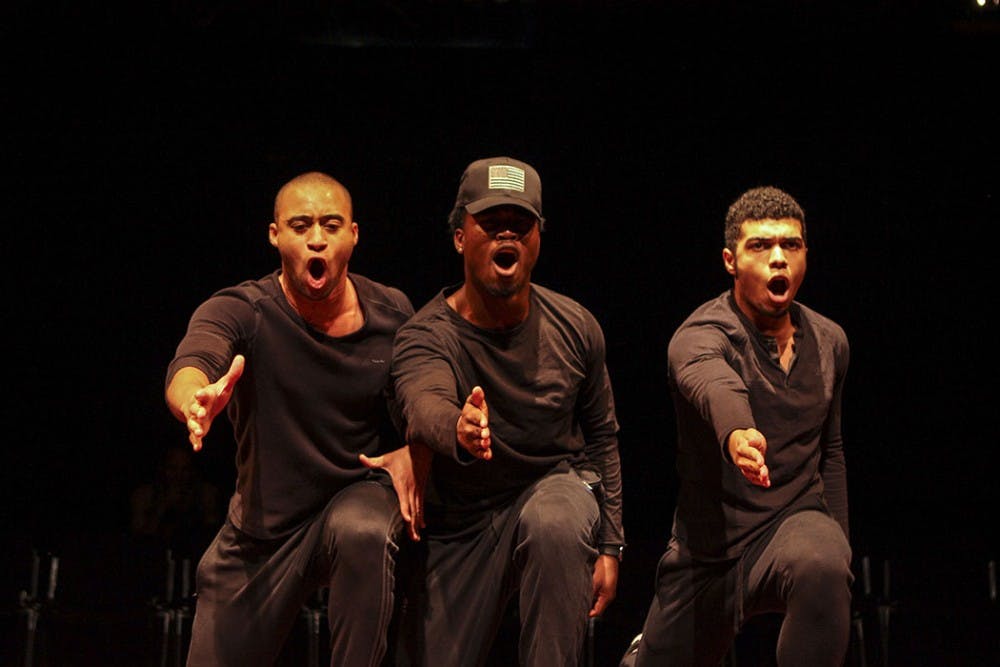At first glance, the upcoming shows for the University’s main theatrical CIOs, such as Spectrum’s “Pride and Prejudice,” Shakespeare on the Lawn’s “The Importance of Being Earnest” and First Year Players’ “Little Shop of Horrors,” seem like exciting choices. In fact, these shows do include compelling acting opportunities — if you’re white. These organizations have offered few roles for actors who represent racial minorities and have resorted to whitewashing the few minority roles they have. These detrimental practices result in a troublesome underrepresentation of non-white cultures in the performing arts and a stifling of cultural awareness and appreciation.
The problem of underrepresentation stems from these organizations choosing productions written for white casts and audiences. Formerly known for its “provocative” show choices, Spectrum took a disappointing turn this semester with its main production of “Pride and Prejudice.” There is no denying this show’s inescapable whiteness. After all, it takes place in Jane Austen’s world, of the English middle and upper classes, and Spectrum’s “Pride and Prejudice” holds true to the novel’s historical roots with an all-white leading cast. Much like Jane Austen, Oscar Wilde — the author of “The Importance of Being Earnest” — focused primarily on social criticism pertinent to English high society. Considering this, it comes as little surprise that Shakespeare on the Lawn’s cast for “The Importance of Being Earnest” is entirely white. These shows tend to appeal to white culture. If our community truly wants to strive for inclusivity, our theatrical groups should do better than picking shows intended for all-white casts.
Of these three shows, “Little Shop of Horrors” is the only one which includes roles intended for African-American actors. In both the film and the Revival Broadway production, African-American women portrayed Ronnette, Crystal and Chiffon, the deeply soulful trio. However, good intentions fell short for First Year Players primarily due to the stigma surrounding these predominantly white theatrical CIOs among people of color. The cast of “Little Shop of Horrors” also ended up being predominantly white. In order to diversify their audition pool and thereby diversify their cast, these organizations must do more than pick shows with occasional minority roles. No one wants to be a token character who has a minor part. As an African-American actress, I can attest to the fact that if a show limits me to certain minor roles or ensemble because of my race, then I will most likely not audition for the show. To attract actors of color, these organizations must choose shows with leads than can be portrayed by actors of different racial backgrounds.
The CIOs’ failure to choose mainstage productions which offer opportunities for actors of color reflects their unsettling oversight of racial minorities. Granted, this is not an issue unique to the University. We see this time and time again in Hollywood films, which leads to situations such as the #OscarsSoWhite controversy. To help make change, leaders of these CIOs can and should take it upon themselves to learn from this theater season. In the future, they should consider shows other than ones written by deceased white authors and playwrights which center around historically white characters. At its core, the performing arts are about self-expression, so our theatrical organizations should depict more than just the heteronormative white experience to the greater University community.
Implementing such changes in the future is by no means a radical move since the demand for more cultural representation in theater is already present. People of all racial backgrounds at the University want to see, experience and learn about cultures different from their own. We clearly see this desire in the recent popularity of “The Black Monologues” and the growing influence of the Paul Robeson Players, the only theatrical CIO on Grounds devoted to African and African-American culture. The power of “The Black Monologues” and the Paul Robeson Players stems from their devotion to giving a voice to the black community at the University. They offer the representation and cultural insight that our community craves. As of now, the Paul Robeson Players’ Spring production, “For Colored Girls Who Have Considered Suicide / When the Rainbow is Enough,” will be the only theatrical production this semester with a cast and crew comprised entirely of people of color. By taking this extreme, the Paul Robeson Players strive to diversify our artistic fare for the sake of our cultural enrichment. Hopefully, “For Colored Girls” will set an important precedent in our theater community, encouraging others to explore our shared cultural diversity.
Kristen Barrett is a Viewpoint writer for The Cavalier Daily. She can be reached at opinion@cavalierdaily.com.







